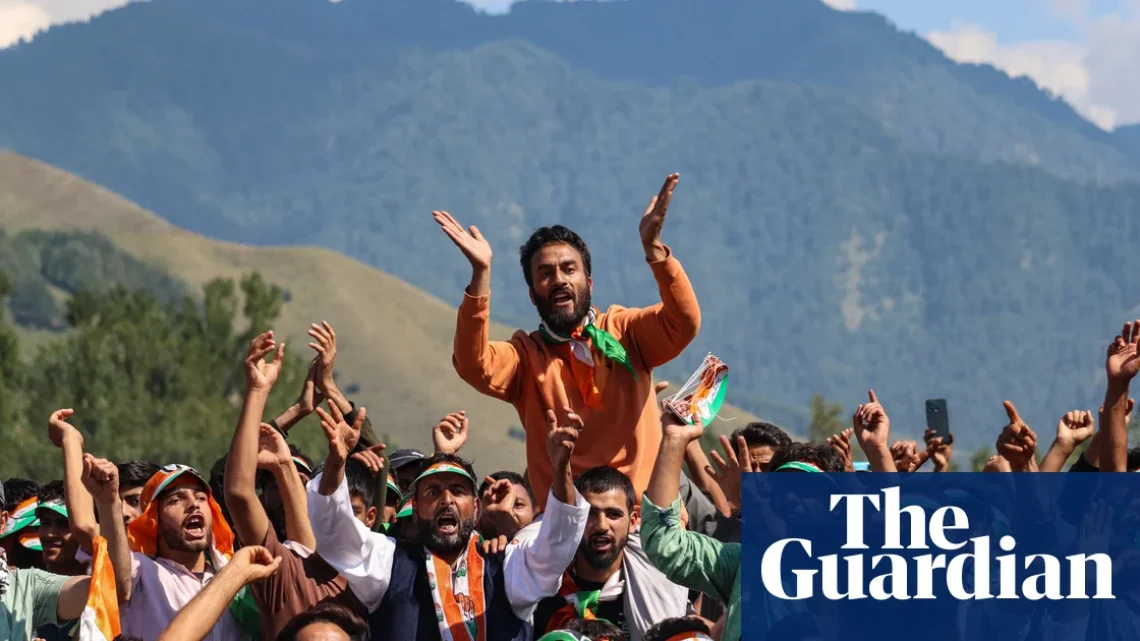
Potential Dismissal of BJP Control in Historic Elections in Jammu and Kashmir: The Guardian
September 19, 2024Kashmir is witnessing its first elections since 2014, generating mixed emotions among its residents. This marks the first time since 1987 that Kashmiris feel optimistic about the electoral process.
According to The Guardian, the elections, taking place in phases until October 1, are described as the most crucial in recent years. For the first time since 2014, Kashmiris will vote for regional representatives after losing their statehood under Modi’s BJP government.
In a surprising turn, despite boycotting the elections by many, other Kashmiris are using this opportunity to reject Modi’s abrogation of Articles 370 and 35A. These articles previously granted the region a unique form of autonomy.
Modi’s unilateral revocation of Article 370 in August 2019 brought Kashmir under the central government’s control, which sparked outrage among locals. The aftermath saw a severe crackdown, with thousands of additional troops deployed in Jammu and Kashmir.
Prominent politicians were detained, and an extensive internet blackout lasted over 18 months, marking one of the longest restrictions on communication. Such measures were part of the BJP’s long-standing agenda to assert control over Jammu and Kashmir.
While the BJP anticipated a sweeping victory, widespread resentment has led them to contest less than a third of the 90 assembly seats. Their focus has largely been on the Hindu-majority region of Jammu, where they are expected to perform poorly.
Iltija Mufti, daughter of former chief minister Mehbooba Mufti, highlighted the deep alienation felt by the people. She noted that the sense of disempowerment is unprecedented in Jammu and Kashmir’s history.
The Guardian report says that many Kashmiris are aware that the Modi government aims to alter the region’s Muslim-majority demographic. New policies have allowed outsiders to purchase property and invest in the area for the first time.
Further it added that despite promises of investment, unemployment remains alarmingly high, undermining claims of normalcy. Kashmiris believe that by voting, they can create barriers against the ongoing assaults on their identity.
Also, the rising voter turnout is being framed by Modi as a referendum on his 2019 decisions. However, many Kashmiris see their participation as a means to resist the BJP’s policies and reclaim their voices.
People have decisively chosen to vote in large numbers as a form of protest against Modi’s administration. This election represents a clear rejection of the BJP’s actions and policies in the region.
Kashmiris are determined to support only those parties that pledge to restore the region’s autonomy. They seek a resolution to the Kashmir issue that respects their rights and identity. As the elections unfold, the message from the people is loud and clear: they demand recognition and respect for their democratic rights. This election serves as a crucial moment in Kashmir’s ongoing struggle for autonomy and justice, The Guardian reports.

